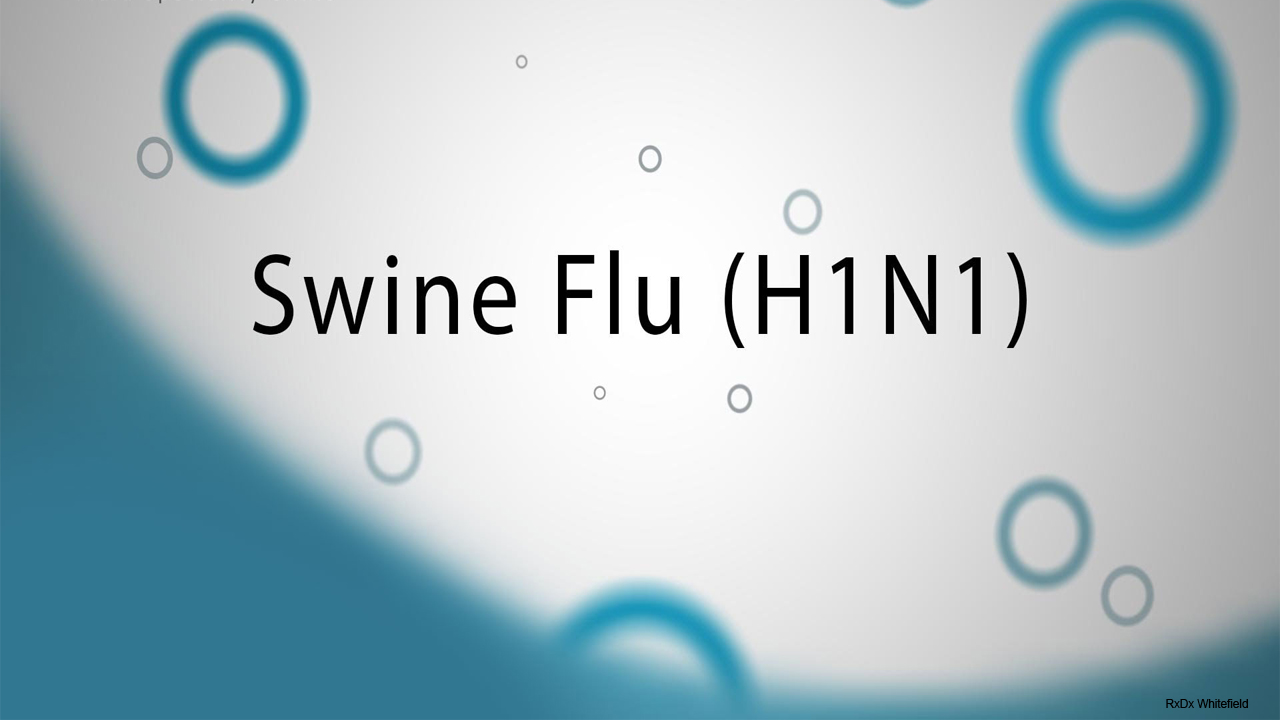Swine flu, otherwise called the H1N1 infection, is a moderately new strain of a flu infection that causes side effects like the ordinary flu. It started in pigs yet is spread fundamentally from person to person. Swine flu stood out as truly newsworthy in 2009 when it was first found in quite a while and turned into a pandemic.
The WHO pronounced the H1N1 pandemic over in August 2010. From that point forward, the H1N1 infection has been known as a customary human seasonal infection. It keeps on spreading during flu season like different strains of this season's virus.
Like different strains of influenza, H1N1 is exceptionally infectious, permitting it to spread rapidly from individual to individual. A basic sneeze or cough can spread germs through the air. The infection can stay on tables and surface territories like door handles, for a long time.
Risk factors for swine flu
Today, hazard factors for getting swine flu are equivalent to some other strain of this season's virus. A few people are at higher danger for getting genuinely sick in the event that they're amongst people with swine flu. These gatherings include:
- Adults over age 65
- Children under 5 years of age
- Young grown-ups and kids under age 19 who are getting long haul anti-inflammatory medicine treatment
- People with a compromised immune system (for example, AIDS)
- Pregnant ladies
- People with constant ailments, for example, asthma, coronary illness, diabetes mellitus, or neuromuscular infection
Reasons for swine flu
Swine flu is exceptionally infectious. The infection is spread through spit and bodily fluid particles. Individuals may spread it by:
- Sneezing
- Coughing
- Touching a germ-covered surface and afterward contacting their eyes or nose
- Side effects of swine flu
The side effects of swine flu are actually similar to those of ordinary flu. They include:
- Chills
- Fever
- Coughing
- Sore throat
- Runny or stodgy nose
- Body pains
- Fatigue
- Diarrhea
- Nausea and regurgitating
Diagnosing swine flu
Your doctor can make a conclusion by examining liquid from your body. The swab will be analyzed utilizing different laboratory methods to recognize the particular sort of infection.
Treating swine flu
Most instances of swine flu don't need drugs for treatment. You don't have to see a specialist except if you're in danger of developing unexpected issues from this season's virus. You should zero in on assuaging your manifestations and forestalling the spread of the H1N1 to others.
What to do in case you have swine flu
Techniques for dealing with the indications of pig influenza are like standard influenza:
- Get a lot of rest. This will help your immune system center around battling the disease.
- Drink a lot of water and different fluids to avoid dehydration. Soup and clear juices will help recharge your assortment of lost supplements.
- Take over-the-counter pain relievers for manifestations, for example, headache and sore throat.
Stopping swine flu
The most ideal approach to forestall pig influenza is to get a yearly flu immunization. Other simple approaches to forestall swine flu include:
- Frequently washing hands with cleanser or hand sanitizer
- Not contacting your nose, mouth, or eyes (the infection can make due on surfaces like phones and tabletops.)
- Staying home from work or school in case you're sick
-
Avoiding enormous social events when swine flu is in season
Serious instances of swine flu can be deadly. Most lethal cases happen in those with basic constant ailments, for example, HIV or AIDS. Most individuals with swine flu recuperate and can envision a typical future.
Also, Flu season shifts from year to year but as a rule, it stops in January, in spite of the fact that it's conceivable to get this season's virus any season.

 Swine flu is exceptionally infectious. The infection is spread through spit and bodily fluid particles.
Swine flu is exceptionally infectious. The infection is spread through spit and bodily fluid particles.









.jpeg)








.png)
.png)

.png)
.png)
.png)

.png)
.png)
.png)

.png)
.png)